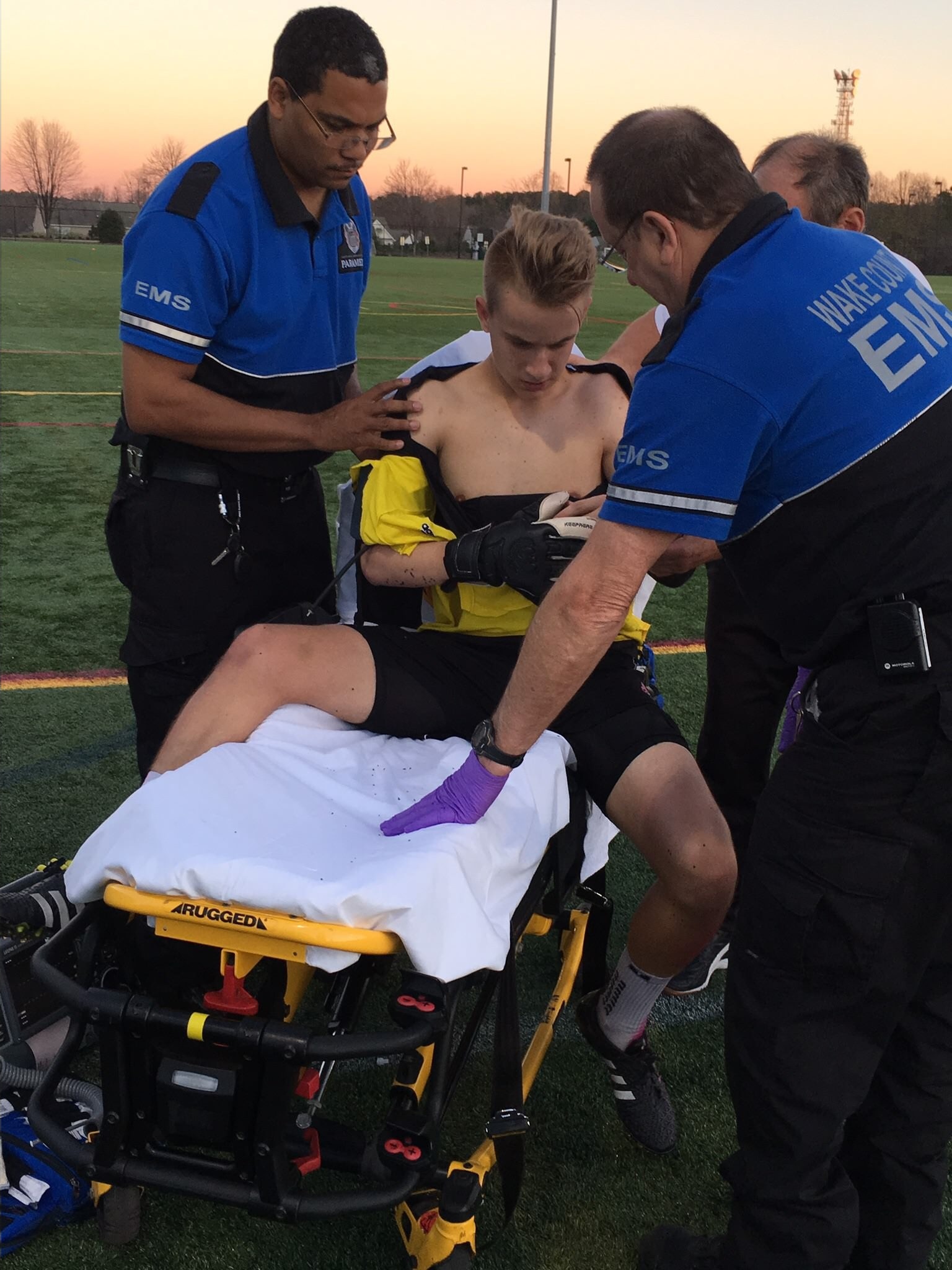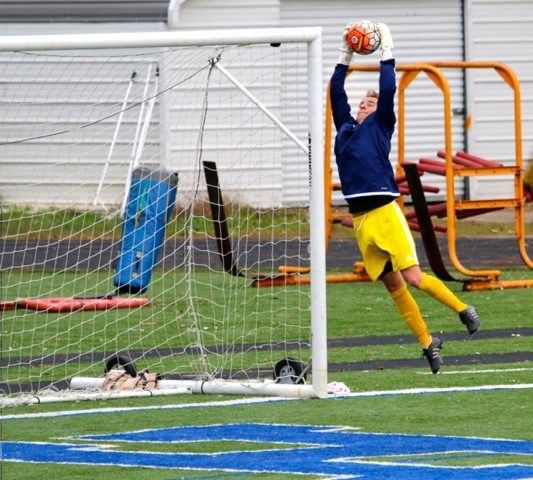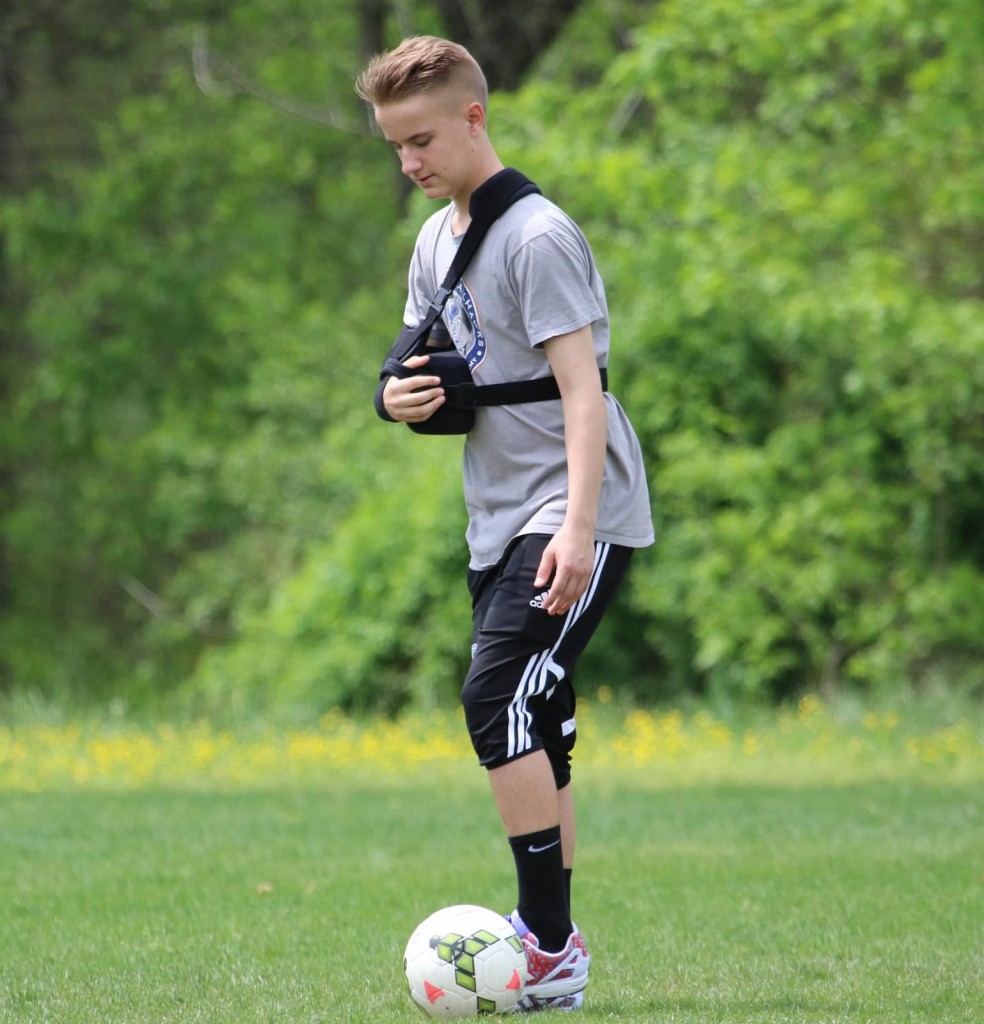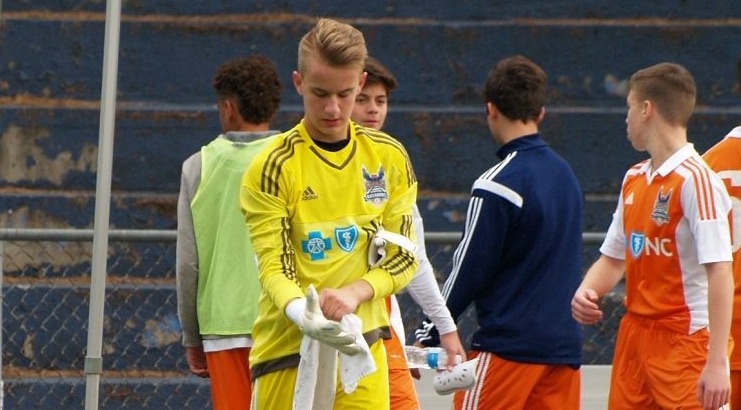Youth Soccer Player Duncan Wegner’s Return to the Soccer Pitch after Major Shoulder Surgeries
Allowing a sports injury to heal is just the beginning of the road to recovery and getting back to where you where before the incident. The most important part of recovery can be your mindset. Here is the story of a remarkable youth soccer player whose positive approach to recovery makes him a role model for players all across the country.
The impact of injuries can take a toll on us all and requires a special mindset to return to the game.
2001 USSDA Goalkeeper Duncan Wegner of the U14 Capital Area RailHawks Development Academy has shown signs of a promising future on the soccer field that was halted due to suffering from two shoulder dislocations which required surgery. This young man’s positive perspective on his recovery has motivated him to come back stronger than ever as this athlete shows what true dedication and aspiration looks like — and, sets an example for his peers along the way. Wegner aims to take the field again this summer at the National Showcase in June.
 Youth Soccer News: Returning to the soccer field after a major injury is always difficult for a soccer player. Although the process of recovery can take its toll on the road to recovery, the ability for a youth soccer player to lace up his or her boots again and work hard to reach their goals is always a refreshing tale to tell. Goalkeepers are a special breed of soccer players. Requiring super fast reflexes, a quick mind with a superior IQ and a fearless dedication to protecting their net, goalkeepers are the final force stopping a goal from being scored. While injuries can happen anywhere on the soccer field, goalkeepers are at risk for injury every time they leap to put their body between the ball and the net.
Youth Soccer News: Returning to the soccer field after a major injury is always difficult for a soccer player. Although the process of recovery can take its toll on the road to recovery, the ability for a youth soccer player to lace up his or her boots again and work hard to reach their goals is always a refreshing tale to tell. Goalkeepers are a special breed of soccer players. Requiring super fast reflexes, a quick mind with a superior IQ and a fearless dedication to protecting their net, goalkeepers are the final force stopping a goal from being scored. While injuries can happen anywhere on the soccer field, goalkeepers are at risk for injury every time they leap to put their body between the ball and the net.
Duncan Wegner is a highly talented goalkeeper who plays for the U14 Capital Area RailHawks Development Academy. Wenger was called up to the U.S. Youth National Team camp in October of 2014 and was a force to be reckoned with on the soccer pitch.
In March, 2015, Wegner suffered an anterior shoulder dislocation 10 days before his team traveled to the United Kingdom to play in a series of international youth soccer matches.
Wegner had surgery on his torn labrum and returned to the playing field in September of 2015. Three months later, Wegner suffered an additional shoulder dislocation – this time to his other shoulder. In December, Duncan went on to have his second surgery in less than nine months. Today Duncan is currently in the process of physical therapy — and looking forward to being back in front of the goal this summer at the National Showcase in June. Few goalkeepers ever have two surgeries within such a short time frame, especially at the young age of 13 or 14 years old.

Dr. Jonathan Chappell, Wegner’s physician, describes Wegner’s case as not generally common in soccer, but not necessarily unusual for goalkeepers who place more stress on their shoulders from diving and reaching, which can result in dislocations. Although shoulder instability tends to be relatively rare, many cases arise as a result of two different occurrences. Complete dislocation of the shoulder can result from brutal or physical force; in contrast to partial dislocations (subluxations) that are caused by an individual having loose joints. Both incidents are treated differently with a complete dislocation typically requiring arthroscopic surgery and loose joint cases being managed with physical therapy.
During Wegner’s first injury, he suffered a traumatic anterior shoulder dislocation that required arthroscopic procedure to treat a labrum tear. The second incident resulted in cartilage tear in his left shoulder resulting in the same procedure.
Dr. Chappell from Wake Orthopedics explains that athletes who play traditional contact sports such as football and lacrosse tend to see higher incidents of these injuries, but with the increasing physicality of youth soccer in America, he expects more injuries like Wegner’s to occur.

Ansley Wegner believes her son’s positive attitude and determination has allowed him to remain focused on his recovery. As any soccer mother would, Ansley’s initial reaction to her son’s second injury was of disbelief and panic — while her son Duncan remained calmer, remembering the road to recovery after his first shoulder surgery. Now, after the surgery and Duncan is well on the road to a fun recovery both soccer mom and soccer player agree that the first time around was a bit more nerve racking.
“We know the process now and what’s going to happen,” Wegner explained to his mother.
Remarkably, knowing what was ahead helped Wegner keep his spirits up. However frustrating the situation was, Duncan’s experience provided him with the information to discuss the probable timeframe of his recovery with his coaches and even make it out to team practices and to watch games. Greg Shields was Duncan’s coach last year and was highly supportive of his young goalkeeper.
Wegner’s current coach Paul Forster of the U14 RailHawks says, “Wegner’s unbelievable commitment has set a perfect example for the team – Duncan is a true role model for his peers.”
 “It’s like having a young assistant coach on the sidelines,” says Forster.
“It’s like having a young assistant coach on the sidelines,” says Forster.
Always looking for ways to improve, Duncan has used his time during recovery to work on other aspects that can refine his game such as focusing on other muscle groups and developing his mindset on the field.
“What you can do is watch film and other soccer players who play your position — in order to learn how to get better — without actually playing,” states Duncan Wegner.
“Fortunately, the success of surgical management is very good and players typically make a full recovery and return to play,” states Dr. Chappell.
At the time of the initial injury Ansley explains that they were not sure what to expect and what it would mean for his potential soccer career. Ansley want online looking for information and resources on the recovery process, but found little on the subject. Although she came across goalkeeper Peter Cech having the same injury and procedure done as Duncan, she didn’t find the information completely relatable due to his professional status and access while at London’s Chelsea FC.
Duncan has returned to training with a neoprene shoulder stabilizer called a Sully brace.

The injury sparked a light in Wegner that any soccer mom would be truly proud of. Duncan’s motivation has always been enhanced by his passion for the game of soccer and he is determined to come back stronger than ever. Ansley claims that her son takes the approach that everything happens for a reason and that he is getting this obstacle out of the way.
“I think it’s going to make me a lot more determined in the long run. I realize that I’m not going to be able to play forever and have to take advantage of the time I have. I want to work as hard as I can to get the most out of myself,” declares Wegner.
SoccerToday would like to thank Ansley for sharing her son’s experience. “I would have loved to have found a story at SoccerToday about a youth goalkeeper who had a devastating shoulder injury and came back to the field,” wrote Ansley in an email earlier this year. Hopefully this article will not only celebrate Duncan Wegner’s brave fighting spirit but help other soccer mothers and soccer fathers who find themselves facing their beloved players being injured.







